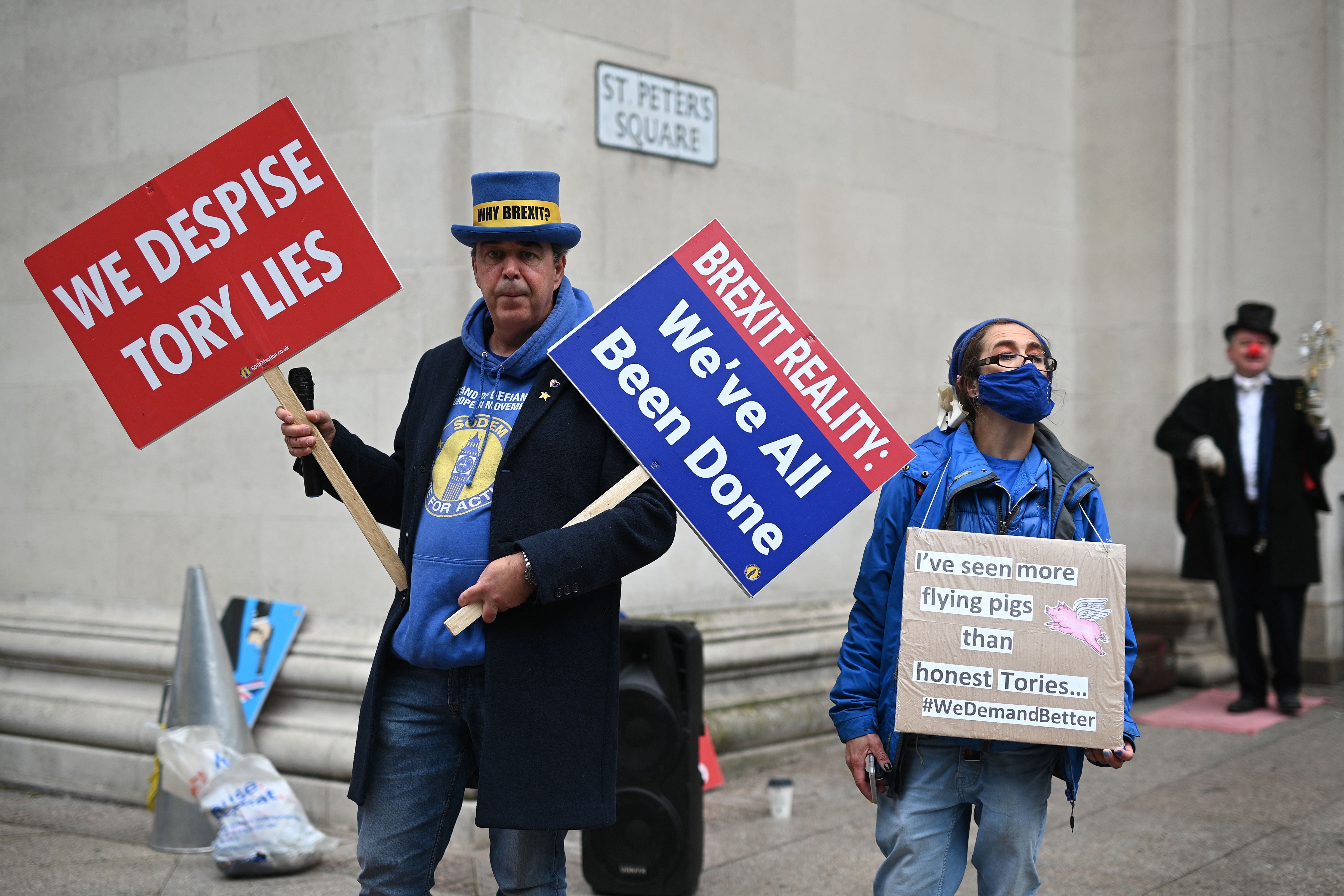We have a long way to go if we’re ever to reach this mythical post-Brexit business paradise
My friend sent me text from a book about what the UK would be like after Brexit, I don’t think it was meant to be funny, writes Chris Blackhurst


At first, I thought it was a joke. A friend had sent me an extract from a decade-old book predicting what Britain would be like in 2020. In it, Sheila Jones “runs a successful small business, Gentle Breezes, in Birmingham. Over the past 12 months, it has expanded and taken on two new members of staff. Unlike a few years ago, the paperwork that went with this has not proved such a major irritant. There is a very good reason for this. The amount of red tape choking business in Britain has gone down.”
The book is called Ten Years On – Britain Without The European Union and was published in 2009. It’s not meant to be funny. It was a serious work by Dr Lee Rotherham, the Brexit adviser and campaigner, with a foreword by the political journalist, Trevor Kavanagh, and an epilogue by Frederick Forsyth.
They envisaged how Britain would be faring a decade after leaving the EU in 2010. That would be the same as someone predicting where we will be in 2030. We might be in better shape, or not.
The book says this, in the section entitled “The Business Owner” about Sheila Jones and her once bureaucratically stifled enterprise: “The process of review began within weeks of breaking with the old EU structures. It was no easy task; there were thousands of statutory instruments, putting into law 105,000 pages of European regulations. These needed to be sifted to determine which ones were commonsensical, which ones were superfluous, and which were simply damaging. The review quickly revealed just how many bad laws went far beyond the original EU intent, because the civil service had added to the text for reasons of its own.”
Note: “Within weeks of breaking with the old EU structures,” and, “The review quickly revealed…”
As a result, “Tens of thousands of pages were correspondingly either simplified or cut. Businesses were among the major winners. Mrs Jones found that she had two hours’ less paperwork to fill out every week.
Until we left, he says, they could place an order with an EU manufacturer and the piece of jewellery would come back usually within days
“The health and safety paperwork was much clearer, and based on common sense. One example was the legislation governing waste disposal. The concept was a popular one, but the old rules governing it seemed to have been drafted on another planet. A small firm was expected to cough up £850 in a given year to be compliant with just one directive, with a wall of paperwork that seemed to push waste to travel further while encouraging local fly tipping. These compliance costs were passed on to the consumer, without even counting the extra £15 per tonne to dispose of the waste.
“In some cases, lightening the legislation while keeping the intent rubbed away much of the gold plating; in others, the bureaucracy was so heavy for so little benefit it was just dumped. Nationally, the clearout over several years was judged to have saved two per cent of the country’s GDP. That totted up to a staggering £19bn. In Mrs Jones’s case two per cent extra income meant expanding the company this year.”
Talk to any business-owner, a real one, today, and they paint a different picture of life, albeit only 10 months after exiting the EU. Of the urgent review leading to the scrapping of rules there is precious little sign. As to the regulations on waste disposal, there is no evidence of them being abandoned or even simplified.
The pal who sent me the book dismisses it as a, “fantasy about how leaving would make trade easier”. He is involved in the management of his family’s jewellery firm and says: “The reality is we are now bogged down in endless paperwork and huge processes with customs and courier companies.”
Until we left, he says, they could place an order with an EU manufacturer and the piece of jewellery would come back usually within days. “Now it can now take up to four months.”
Members of his family, “remember when trade was last this difficult. It was in the 1960s. All the things that became progressively easier after we joined the EC have now been removed.”
They could use suppliers based elsewhere, outside the EU, but have not been able find one that is suitable, plus they like to deal with the manufacturers they’ve built up relationships with over decades.
Not Mrs Jones. For her it was business as usual, better even: “Thanks to the trade agreement reached with the EU, her company continues to deal with the same partners on the continent as she had prior to 2010.
“So, Gabi from Frankfurt still calls once a week, while Aleix and Llora in Barcelona have increased their orders on last year’s, thanks to the striking new floral design that’s proven quite a hit.”
Now though, “free of “the red tape forced on her by Brussels”, Mrs Jones can now venture further afield. “A sign of the times this week was the phone call from Shanghai. The city’s economic growth this year is practically double that of the national Chinese average, and even that was at 6.9 per cent. There are potentially thousands of new consumers interested in buying her products in that city alone, who this year now have the jobs and the money. Truly, the future is bigger than just the EU, it is global.”
In 2030, will the “wall of paperwork” have vanished? Will the rules surrounding waste disposal have been scrapped? Will my friend be “free of the red tape” forced by Brussels and be trading happily and quickly with the EU? Will British businesses have ready and eager buyers in China?
It’s only 2021 and there is still a long way to go. Onwards…
Join our commenting forum
Join thought-provoking conversations, follow other Independent readers and see their replies
Comments



Bookmark popover
Removed from bookmarks